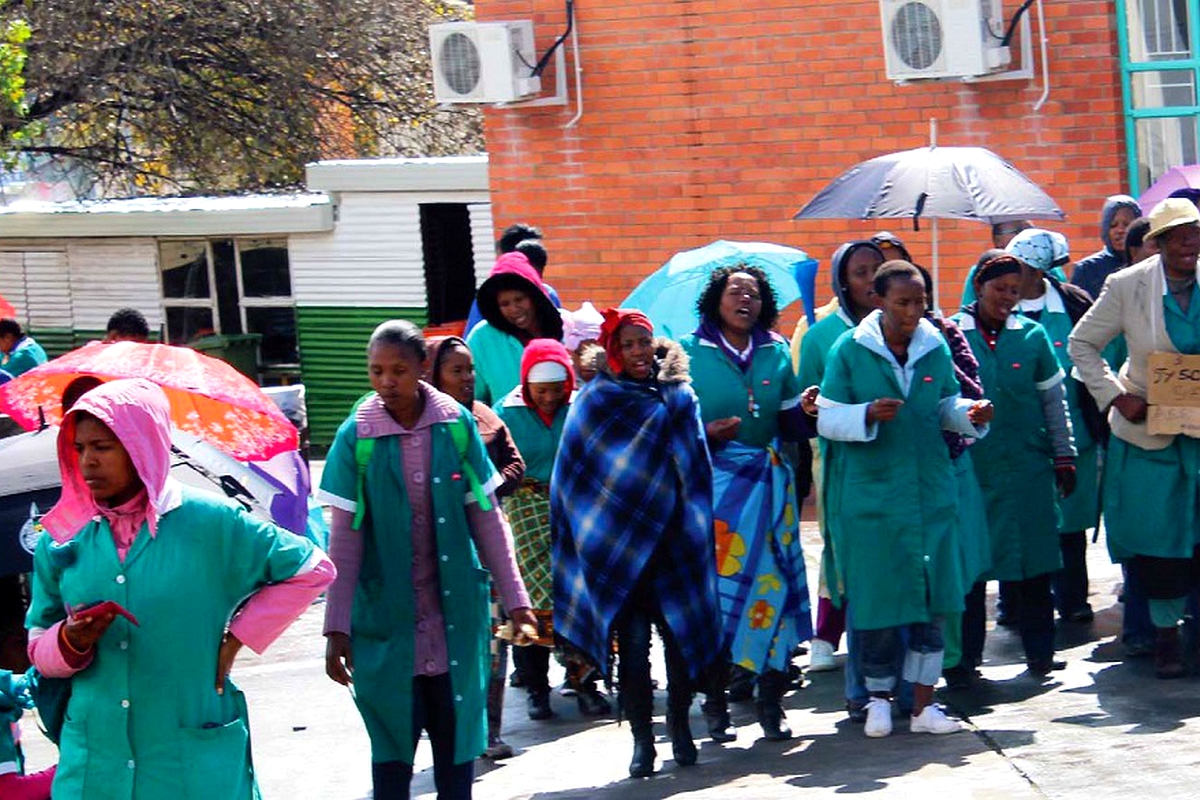TROUBLES in the textile industry keep mounting, with the sector overshadowed by a chain of strikes while at the same time having to deal with the impact of the COVID-19 pandemic in order to remain in business.
business
May 11, 2021
NEO SENOKO
2 min read
Study reveals dire COVID impact on textile industry

Crabtree Factory workers on strike
Factory workers demand a salary increment as was the agreement in 2020, the industry on the other hand is struggling to remain in business. It never rains but it pours, it appears.
On the other hand, a study published by the Private Sector Foundation of Lesotho (PSFL) last week revealed even more tussles the sector is going through since the advent of the pandemic that has left the world economy in shambles.
A snow-ball sampling technique was used to select 93 respondents from local tailoring businesses and five from foreign firms, in which primary data was collected using questionnaires and interviews.
At the forefront, according to the PSFL study, the industry is struggling to regain customers, deal with high rentals as well as expensive fabrics to produce for the currently rigid market condition.
“The respondents clarified that process on fabrics keeps rising, and this was more affected by the COVID-19 pandemic. The increase in prices of material from local market was influenced by closed borders as tailors were unable to access material from the international market,” the PSFL study shows.
The fact that borders were closed also added salt to the wound because under normal circumstances, factories depend on international market for sales while some material is obtained from South Africa.
However, despite these challenges, the study recommends among others the establishment of a Textile and Apparel Association (TTA) to deal with all matters relating to the textile and apparel sector.
Enjoy our daily newsletter from today
Access exclusive newsletters, along with previews of new media releases.
“The association must ensure that all members involved in the textile and apparel sector are fully licensed by a One Stop Business Facilitation Centre (OBFC). Based on that, the financiers will have trust and confidence to provide financial resources and the association will be in a position to fully engage. The government of Lesotho with the assistance of development partners through Aid for Trade should craft the policies and special programmes to ensure that the sector thrives,” the study also states.
Furthermore, business linkages between corporates and Micro, Small and Medium Enterprises (MSMEs) should be institutionalised by an act of Parliament to ensure that MSMEs tap skills and knowledge from corporates.
These partnerships, the study reckons shall unlock higher added value with the country as well as a strong return on investment.
The global textile and apparel industry market had a retail market value of $1.9 trillion in 2019 and is projected by the Boston Consulting Group to reach $3.3 trillion in 2030, growing at a compound annual growth rate of 3.5 percent. Projections ahead of the COVID-19 pandemic forecasted that population growth, rising levels of disposable income and rapid urbanisation in developing countries would likely drive demand in the future.
Tailored for you






